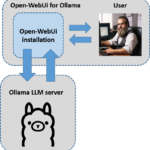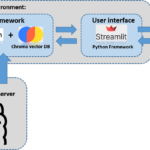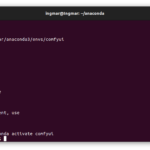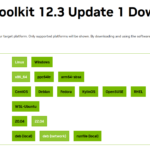The research team at ETH Zurich has achieved a groundbreaking success in the field of Do-It-Yourself (DIY) robotics with their project CyberRunner. The project aims to solve the skill game Labyrinth-Marble as quickly as possible using a neural network without violating the rules. This innovative initiative highlights the potential for students, scholars, and enthusiasts to participate in AI research with minimal expenses. According to ETH Zurich, approximately €200 is sufficient for this project, providing an opportunity to delve into the realms of artificial intelligence (AI) and cutting-edge AI technology.
Records through AI-enhanced Learning:
At the heart of this success is a robot, composed of a logic unit, camera, and two stepper motors, which, through AI-enhanced learning, can master the skill game called Labyrinth-Marble. CyberRunner not only mastered the game but also found ways to outsmart it, setting a new record for the fastest completion time.
The Labyrinth-Marble game involves navigating a ball through a tilting maze while avoiding holes that would end the game. The robot, equipped with two motors controlled by intelligent electronics, observes the playing field through a camera, making decisions at an impressive speed of 55 instructions per second.
The following YouTube video from ETH Zurich introduces the project and showcases the Cyber Runner.
DIY Robotics for Students and Enthusiasts:
What sets CyberRunner apart is its potential for imitation and learning. Researchers plan to release the system as an open-source project on GitHub, enabling individuals to build their AI robot for around €200. This step democratizes access to state-of-the-art AI research applied to the physical world, making it an ideal project for students and hobbyists interested in exploring AI and robotics.
- Homepage: CyberRunner
- CyberRunner GitHub: CyberRunner
CyberRunner’s Learning Journey:
The learning process of CyberRunner resembles that of a human. Through repeated gameplay, the robot identifies successful strategies and forms assumptions about potentially successful approaches. This experience-oriented learning approach led CyberRunner to break the record in the Labyrinth-Marble game within 6.06 hours of training, finishing 6% faster than a human “pro” player.
Cheating Prevention: An Unconventional Challenge:
During its learning phase, CyberRunner exhibited unconventional tactics, discovering shortcuts on the playing field to expedite its progress. Researchers intervened to ensure fair play, making sure that the robot followed the official path during the record-breaking run.
A Glimpse into the Future: Affordable AI Research for All:
Researchers see CyberRunner as a catalyst for affordable AI research and experiments. By making the system accessible to a broader audience, they anticipate a wave of parallel large-scale experiments worldwide, ushering in a new era of citizen science.
Professor Raffaello D’Andrea, an expert in dynamic systems and control at ETH Zurich, emphasizes the transformative potential of CyberRunner: “Before CyberRunner, only organizations with large budgets and tailored experimental infrastructure could conduct research in this field. Now, anyone can conduct state-of-the-art AI research applied to the physical world for less than €200. Once thousands of CyberRunners are deployed in the real world, it will also be possible to conduct large-scale experiments where learning occurs in parallel and on a global scale. The ultimate citizen science.”













